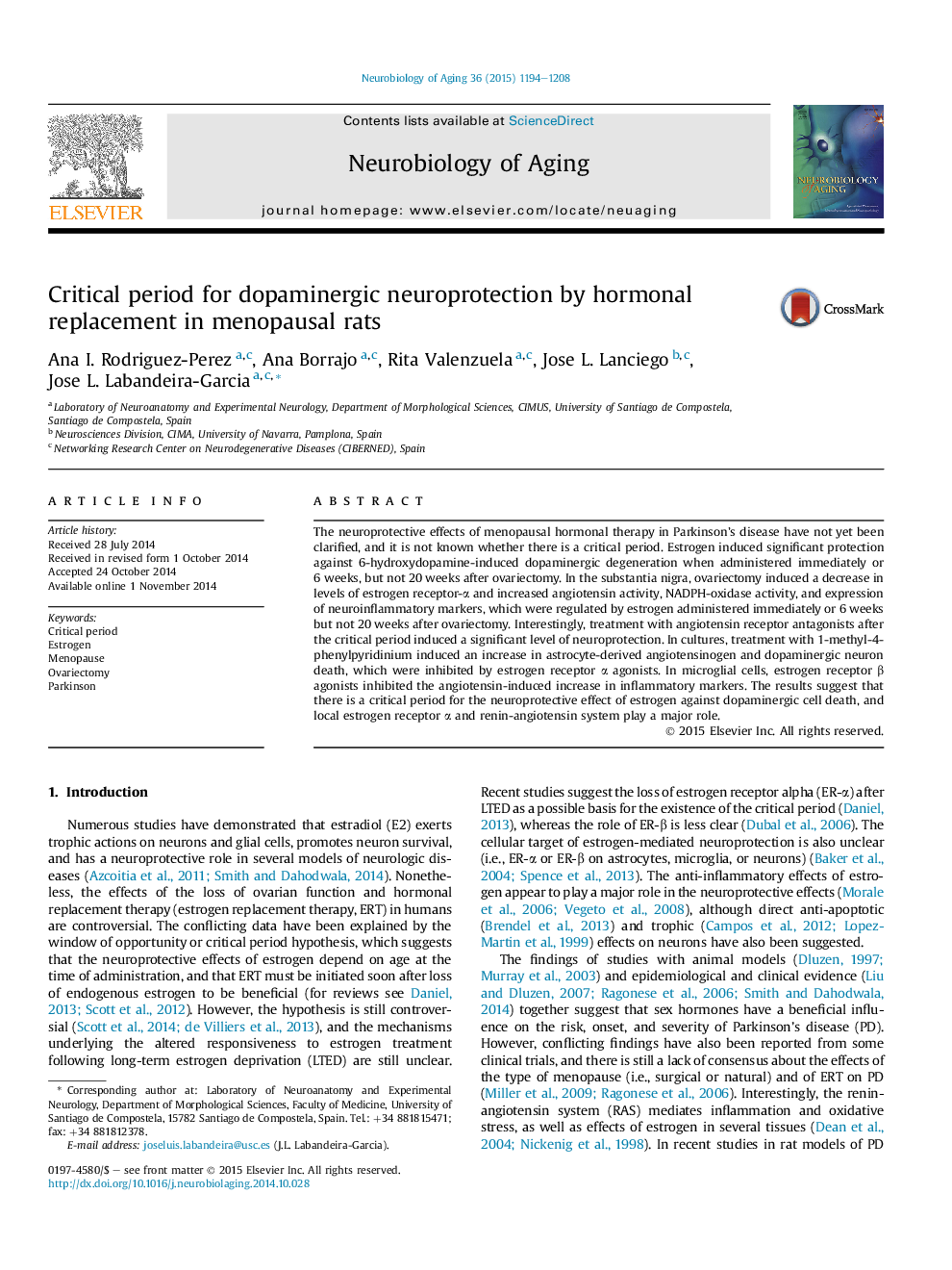| Article ID | Journal | Published Year | Pages | File Type |
|---|---|---|---|---|
| 6805065 | Neurobiology of Aging | 2015 | 15 Pages |
Abstract
The neuroprotective effects of menopausal hormonal therapy in Parkinson's disease have not yet been clarified, and it is not known whether there is a critical period. Estrogen induced significant protection against 6-hydroxydopamine-induced dopaminergic degeneration when administered immediately or 6 weeks, but not 20 weeks after ovariectomy. In the substantia nigra, ovariectomy induced a decrease in levels of estrogen receptor-α and increased angiotensin activity, NADPH-oxidase activity, and expression of neuroinflammatory markers, which were regulated by estrogen administered immediately or 6 weeks but not 20 weeks after ovariectomy. Interestingly, treatment with angiotensin receptor antagonists after the critical period induced a significant level of neuroprotection. In cultures, treatment with 1-methyl-4-phenylpyridinium induced an increase in astrocyte-derived angiotensinogen and dopaminergic neuron death, which were inhibited by estrogen receptor α agonists. In microglial cells, estrogen receptor β agonists inhibited the angiotensin-induced increase in inflammatory markers. The results suggest that there is a critical period for the neuroprotective effect of estrogen against dopaminergic cell death, and local estrogen receptor α and renin-angiotensin system play a major role.
Related Topics
Life Sciences
Biochemistry, Genetics and Molecular Biology
Ageing
Authors
Ana I. Rodriguez-Perez, Ana Borrajo, Rita Valenzuela, Jose L. Lanciego, Jose L. Labandeira-Garcia,
